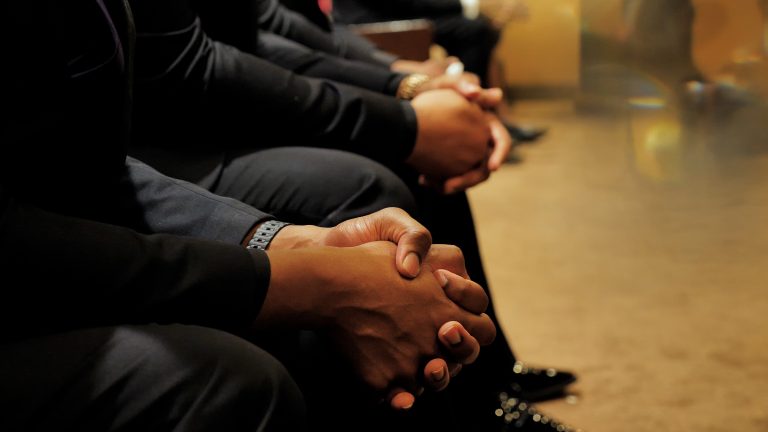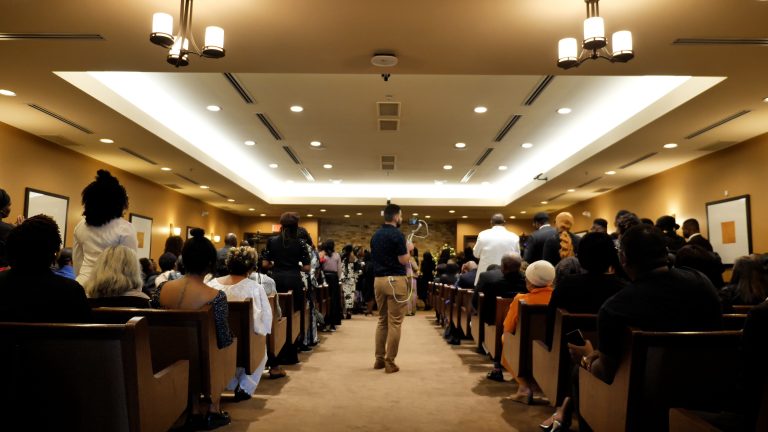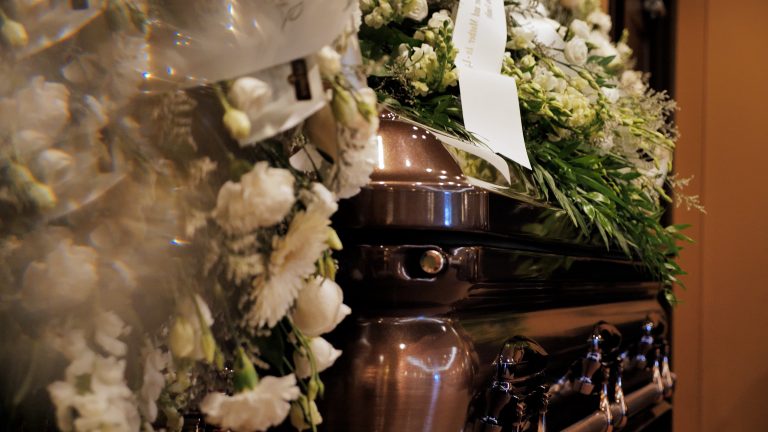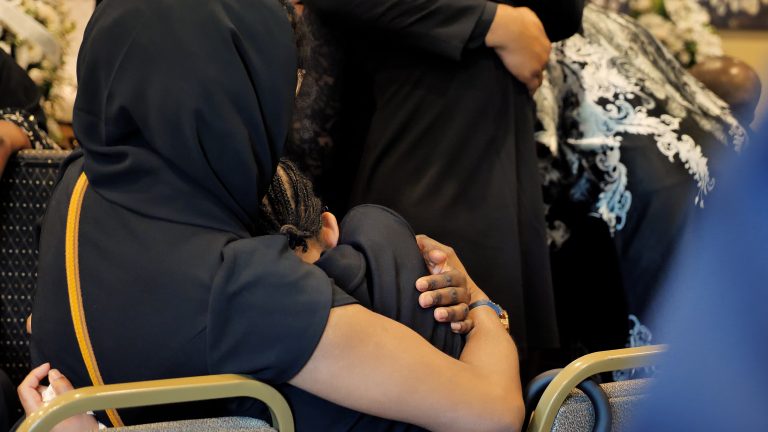What To Do
Losing a loved one is a deeply emotional experience that requires navigating various practical and emotional aspects. Funeral planning plays a vital role in honouring the life of the departed and providing solace to family and friends during this challenging time. In this comprehensive guide, we will walk you through the process of planning a meaningful funeral, offering valuable insights and practical steps to create a personalized and memorable tribute that reflects the uniqueness of your loved one.

Understanding Your Options
It is important to go through and consider all your options when planning for a loved one.
Planning a funeral involves making important decisions regarding the type of service and disposition of the body. By understanding your options, you can make informed choices that align with your loved one’s wishes and your family’s cultural or religious beliefs.
a. Traditional and Alternative Funeral Arrangements:
Traditional funeral arrangements typically involve a visitation or wake, a formal funeral service, and a graveside service. However, alternative options such as memorial services, celebration of life ceremonies, or direct burials/cremations are becoming increasingly popular. Consider the preferences and values of your loved one when deciding on the type of arrangement that best reflects their life and legacy.
b. Burial and Cremation Options:
Burial involves interring the body in a cemetery or a family plot, providing a physical space for visitation and remembrance. Cremation, on the other hand, involves the process of reducing the body to ashes. It offers flexibility in terms of memorialization options, including scattering ashes, placing them in an urn, or even incorporating them into unique keepsakes. Consider the personal and cultural significance of burial or cremation when making this decision.
c. Religious and Cultural Customs:
Religious and cultural customs often play a significant role in funeral planning. They may dictate specific rituals, prayers, or traditions that should be observed during the funeral service. Consult with religious leaders or cultural advisors to ensure that you respect and honor these customs appropriately.
d. Legal Requirements and Documentation:
Familiarize yourself with the legal requirements related to funerals, including obtaining death certificates, permits, and other necessary documentation. Each jurisdiction may have specific regulations regarding embalming, transportation of the body, and burial/cremation procedures. Be sure to comply with these requirements to ensure a smooth and lawful process.
Taking the time to understand your options allows you to make choices that align with your loved one’s values and preferences. It also ensures that you can navigate the funeral planning process with confidence and create a meaningful tribute that celebrates their life in a way that is truly authentic.

Selecting a Funeral Home or Director
When planning a funeral, one of the crucial decisions you will need to make is choosing a funeral home or director to assist you in the process. This decision can significantly impact the overall experience and outcome of the funeral arrangements. Consider the following factors when selecting a funeral home or director:
a. Reputation and Experience:
Research and inquire about the reputation and experience of various funeral homes or directors in your area. Look for establishments with a solid track record of providing compassionate, professional, and reliable services. Reading online reviews and seeking recommendations from friends, family, or clergy members can provide valuable insights into the quality of service they offer.
b. Services Offered:
Evaluate the range of services offered by different funeral homes. Some establishments may provide comprehensive services, including transportation, embalming, cremation, and burial options. Others may specialize in specific types of funerals, such as religious or cultural ceremonies. Assess your needs and preferences to ensure that the funeral home or director can accommodate them.
c. Personal Connection and Empathy:
Arrange meetings or consultations with potential funeral directors to assess their level of personal connection and empathy. A compassionate and understanding funeral director can guide you through the planning process with sensitivity and support. They should be willing to listen to your wishes, answer your questions, and address any concerns you may have.
d. Pricing and Transparency:
Inquire about the pricing structure and obtain a detailed price list from the funeral homes you are considering. Transparency in pricing is crucial to avoid unexpected financial burdens. Be sure to ask about any additional fees or charges that may apply. Compare the costs and services offered by different funeral homes to make an informed decision based on your budget and requirements.
e. Location and Facilities:
Consider the location and facilities of the funeral home. It should be conveniently accessible for family members, friends, and attendees. Assess the condition and ambiance of the facilities, including chapels, viewing rooms, reception areas, and amenities. The physical environment should be comfortable and suitable for hosting the funeral service and accommodating the needs of the attendees.
f. Pre-Planning and Pre-Payment Options:
Inquire about pre-planning and pre-payment options that the funeral home may offer. Pre-planning allows individuals to make funeral arrangements in advance, alleviating the burden on their loved ones during a difficult time. Pre-payment options can help manage funeral expenses and provide peace of mind. Discuss these options with the funeral home or director if you are interested in making advance arrangements.
Selecting the right funeral home or director is crucial in ensuring a smooth and meaningful funeral planning process. Take the time to research, visit establishments, and have discussions with potential funeral directors to find the one that best aligns with your needs and provides the support and guidance you require.

Burial and Cremation Options
When it comes to funeral planning, one of the significant considerations is choosing between burial and cremation. Both options have their unique characteristics, and understanding them can help you make an informed decision based on personal beliefs, cultural practices, and budgetary considerations. Here are some aspects to consider when exploring burial and cremation options:
i. Burial:
Burial is a traditional and widely practiced method of laying the deceased to rest. It involves interring the body in a cemetery or burial plot. Consider the following factors when contemplating burial:
– Cemetery Selection: Research local cemeteries and their offerings. Consider factors such as proximity to family and friends, the availability of desired burial plots, and the overall ambiance of the cemetery. Some cemeteries may have specific rules and regulations, so ensure that they align with your preferences and cultural or religious requirements.
– Types of Burial: There are different types of burials to consider, such as traditional in-ground burials, above-ground burials in mausoleums or crypts, and natural burials that prioritize eco-friendly practices. Understand the options available to you and choose the one that resonates with your values and wishes.
– Grave Markers and Memorials: Explore options for grave markers, tombstones, or memorials. These can range from simple plaques to elaborate monuments. Consider personal preferences, budget constraints, and any cemetery guidelines when making choices regarding grave markers.
ii. Cremation:
Cremation has become increasingly popular in recent years and offers an
alternative to traditional burial. During cremation, the deceased’s body
is respectfully and carefully reduced to ashes. Consider the following
aspects when considering cremation:
– Cremation Services: Research local cremation service providers and their offerings. Look for reputable facilities with a track record of providing professional and compassionate services. Inquire about the process, timeframes, and any additional options, such as witnessing the cremation or holding a memorial service before or after cremation.
– Disposition of Ashes: Decide how you wish to handle the ashes after cremation. Options include burying the ashes in a cemetery plot, placing them in a columbarium or mausoleum, scattering them in a designated area, or keeping them in an urn at home. Consider personal beliefs, cultural practices, and any legal requirements when making this decision.
– Memorialization: Explore various ways to memorialize your loved one after cremation. This can include creating a memorial garden, dedicating a memorial bench or tree, or opting for personalized cremation jewelry or keepsake items. Choose a memorialization option that holds special meaning for you and allows you to honor the memory of your loved one.
Considerations for Decision Making: When deciding between burial and cremation, there are several factors to take into account:
– Personal Beliefs and Cultural Practices: Consider your personal beliefs, religious or cultural customs, and the wishes of the deceased if known. Some faiths and cultures have specific traditions or requirements surrounding burial or cremation.
– Environmental Impact: If eco-friendliness is important to you, research eco-friendly burial and cremation options. Natural burials, biodegradable urns, and eco-conscious cremation practices are some environmentally conscious choices to consider.
– Emotional and Spiritual Significance: Reflect on the emotional and spiritual significance of burial or cremation for you and your family. Consider how each option aligns with your beliefs and how it may provide solace and closure during the grieving process.
– Financial Considerations: Compare the costs associated with burial and cremation. Burial expenses can include cemetery fees, grave markers, and ongoing maintenance. Cremation costs may involve the cremation process, urns, and any additional services or memorials. Assess your budget and choose an option that meets your financial capabilities.
Ultimately, the decision between burial and cremation is deeply personal and should be based on careful consideration of individual preferences, cultural practices, and practical considerations. Take the time to explore both options, consult with family members and loved ones, and make an informed decision that respects the wishes of the deceased and provides solace and comfort to the bereaved.

Religious and Cultural Customs
Funeral planning often involves honoring and respecting the religious and cultural customs of the deceased and their family. These customs play a significant role in shaping the funeral rituals, ceremonies, and practices. It is essential to be aware of and sensitive to these customs to ensure that the funeral arrangements align with the deceased’s beliefs and the traditions of their community. Here are some considerations when it comes to religious and cultural customs in funeral planning:
i. Research and Consultation:
If the deceased had specific religious or cultural affiliations, take the time to research and understand the funeral customs associated with their faith or cultural background. Consult with religious leaders, community representatives, or knowledgeable individuals who can provide guidance and insights into the appropriate practices and rituals.
ii. Funeral Rituals and Traditions:
Different religions and cultures have unique funeral rituals and traditions. These may include prayers, scripture readings, hymns, chants, or specific symbolic actions. Learn about these customs and incorporate them into the funeral arrangements as appropriate. Respect the wishes of the deceased and their family regarding the inclusion of these rituals.
iii. Dress Code and Attire:
Religious and cultural customs often dictate appropriate dress codes for funeral ceremonies. Some traditions may require specific colors or attire, such as modest clothing or head coverings. Inform the attendees of any dress code expectations in advance to ensure they can adhere to the customs.
iv. Ritual Objects and Offerings:
Many religious and cultural customs involve the use of specific ritual objects or offerings during funeral services. These may include candles, incense, flowers, holy water, or sacred texts. Understand the significance of these items and arrange for their presence during the funeral to honor the traditions.
v. Language and Readings:
In some religious and cultural contexts, specific languages or sacred texts are used during funeral services. If the deceased had a preference or if there are established customs, ensure that appropriate translations or readings are provided. This allows all attendees to understand and participate in the rituals.
vi. Customs Regarding Burial or Cremation:
Different religions and cultures have varying beliefs and customs regarding burial and cremation. Some faiths may have specific rituals or requirements for the handling of the body or the disposal of ashes. Understand these customs and make the necessary arrangements to adhere to them respectfully.
vii. Mourning Period and Practices:
Religious and cultural customs often include designated mourning periods and practices. These may involve specific periods of mourning, rituals of remembrance, or commemorative events. Respect these practices and provide support and resources for the bereaved during their grieving process.
It is crucial to work closely with the family and individuals who can provide insights into the specific religious and cultural customs relevant to the funeral. Show sensitivity, respect, and a willingness to accommodate these customs as much as possible while planning the funeral. Collaborating with religious leaders, cultural advisors, and community representatives can help ensure that the funeral arrangements are meaningful and reflective of the deceased’s beliefs and cultural heritage.
Remember, every religious and cultural tradition is unique, and it is essential to approach funeral planning with an open mind, willingness to learn, and respect for the customs and practices of others. By embracing and incorporating these traditions, you can create a funeral experience that honours the deceased and provides solace to their loved ones.

Pricing and Transparency
Funeral planning involves considering the costs associated with various funeral services and ensuring transparency in financial matters. Understanding the pricing structure and being aware of the available options can help you make informed decisions while staying within your budget. Here are some factors to consider when it comes to pricing and transparency in funeral planning:
i. Itemized Price List:
A reputable funeral home should provide you with an itemized price list detailing the costs of various services and merchandise they offer. This list allows you to see a breakdown of expenses, including fees for professional services, caskets or urns, transportation, embalming, facilities, and any additional services. Request a copy of the price list and take the time to review it carefully.
ii. Comparison Shopping:
To ensure you are getting fair pricing, consider shopping around and obtaining quotes from multiple funeral homes. Comparing prices and services can help you make an informed decision while keeping your budget in mind. Remember, cost should not be the sole factor in selecting a funeral home, but it is an essential consideration.
iii. Package Options:
Funeral homes may offer package options that bundle together various services at a discounted rate. These packages can provide convenience and potentially save you money compared to selecting individual services. However, carefully review the package details to ensure they align with your specific needs and preferences.
iv. Payment and Financing:
Discuss payment options with the funeral home, including whether they accept insurance assignments, credit cards, or installment plans. Some funeral homes may offer financing options to assist with covering the expenses. If needed, inquire about any available financial assistance programs or organizations that may provide support.
v. Prepaid Funeral Plans:
Prepaid funeral plans allow you to make arrangements and prepay for funeral services in advance. While this can provide peace of mind and potentially lock in current prices, it is essential to carefully review the terms and conditions of the prepaid plan. Ensure that the funds are securely held in a trust or insurance policy and that there are provisions for refunds or transfers if necessary.
vi. Ask Questions:
Don’t hesitate to ask the funeral home staff any questions you have regarding pricing and payment options. Seek clarification on any unclear or ambiguous charges. A reputable funeral home will be transparent and provide you with clear explanations to ensure you fully understand the costs involved.
vii. Considerations for Low-Cost Options:
If budget constraints are a concern, discuss low-cost alternatives with the funeral home. They may offer more affordable options, such as direct cremation or basic burial services, without compromising the dignity and respect of the deceased.
It’s important to approach pricing and financial matters in funeral planning with transparency and open communication. By understanding the costs involved, exploring available options, and asking questions, you can make informed decisions that align with your budget and preferences. Remember, a reputable funeral home will be committed to transparency, ensuring that you have a clear understanding of the pricing structure and available services.

Planning a funeral is a deeply personal and emotional process, but with careful consideration and preparation, you can create a meaningful and respectful tribute to your loved one. By following the steps outlined in this guide, you can navigate the complexities of funeral planning with confidence and make informed decisions that align with your family’s wishes and values.
At Farewell Films, we understand the importance of capturing the essence of a funeral and preserving those precious moments. Our dedicated team of professionals is committed to providing high-quality videography services that beautifully document the ceremony, speeches, and gatherings, allowing you to relive those memories for years to come.
Whether you choose a traditional funeral, a celebration of life, or a unique ceremony that reflects your loved one’s personality, our experienced videographers will work closely with you to ensure your vision is captured with sensitivity and professionalism. We are here to support you during this challenging time and help you create a lasting tribute that honours your loved one’s life and legacy.
Contact Farewell Films today to discuss how our services can add a meaningful touch to your funeral or memorial service.
